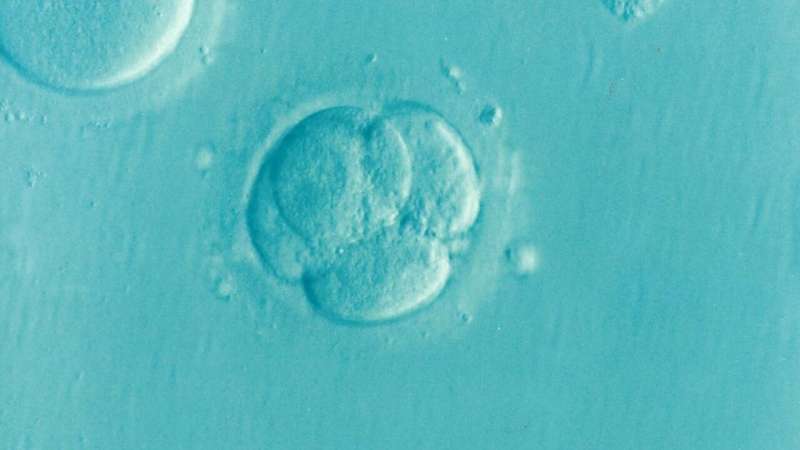This article has been reviewed according to Science X's editorial process and policies. Editors have highlighted the following attributes while ensuring the content's credibility:
fact-checked
trusted source
proofread
Alabama IVF ruling will have national implications, health experts argue

Two health experts from Rice University's Baker Institute for Public Policy are available to discuss what the Alabama Supreme Court's landmark ruling on frozen embryos could mean for the rest of the country and for the science of human embryo research.
Kirstin Matthews, fellow in science and technology policy, and McClain Sampson, fellow in maternal and reproductive health, spoke about the ruling's implications on American women and the science community on the Baker Institute's podcast with Ed Emmett.
Sampson noted that the ruling has not only had immediate chilling effects in Alabama, but those effects have begun to and will continue to spread around the country. She said that the "fetal personhood" movement is essentially trading the health and value of the mother for that of the embryo.
"We do have a trend going on in this country and it's called the personhood argument," Sampson said. "That's what we're seeing here, and I think that's why you might be observing people jumping to react right now is because we are in fact heading into uncharted territory to start conferring personhood status to frozen embryos. Georgia has already started defining personhood as starting at the moment of fertilization."
"My training is in social work, and I'm well aware of how big that issue becomes when we start talking about child abuse occurring in the womb," she continued. "With things like IVF (in vitro fertilization), you have to undergo hormones, you have to undergo genetic testing, let's say things that could affect the embryos. Are we going to be holding women liable for criminal charges if something happens to the embryo or the fetus? It's really concerning, and it's not well thought out … what we're about to experience."
Matthews explained how the IVF ruling will affect stem cell research, which since the 1970s has typically been permitted for the first 14 days after a human embryo is fertilized. She added that the view that "life begins at conception" isn't supported by the full public or the entire pro-life community.
"There's a specific perspective that life begins at fertilization, and that is a specific subset of the pro-life group," Matthews said. "Not all of the pro-life actually ascribed to that. When we did work on embryonic stem cell research, we had lots of advocates within the pro-life movement that were fine with IVF—they were Christian conservatives. They were fine with donating leftover IVF embryos for research purposes if the parents choose to.
"There's also other perspectives besides the Christian perspectives in our plural society; many Jewish and Muslim faiths do not believe the embryo—until later stages around 40 days—as having 'ensoulment.' At this point in time (during IVF), it's a cluster of cells. They view it as a cluster of cells, and then ensoulment happens when (the embryo) starts embedding itself more fully within the woman and growing more fully."


















